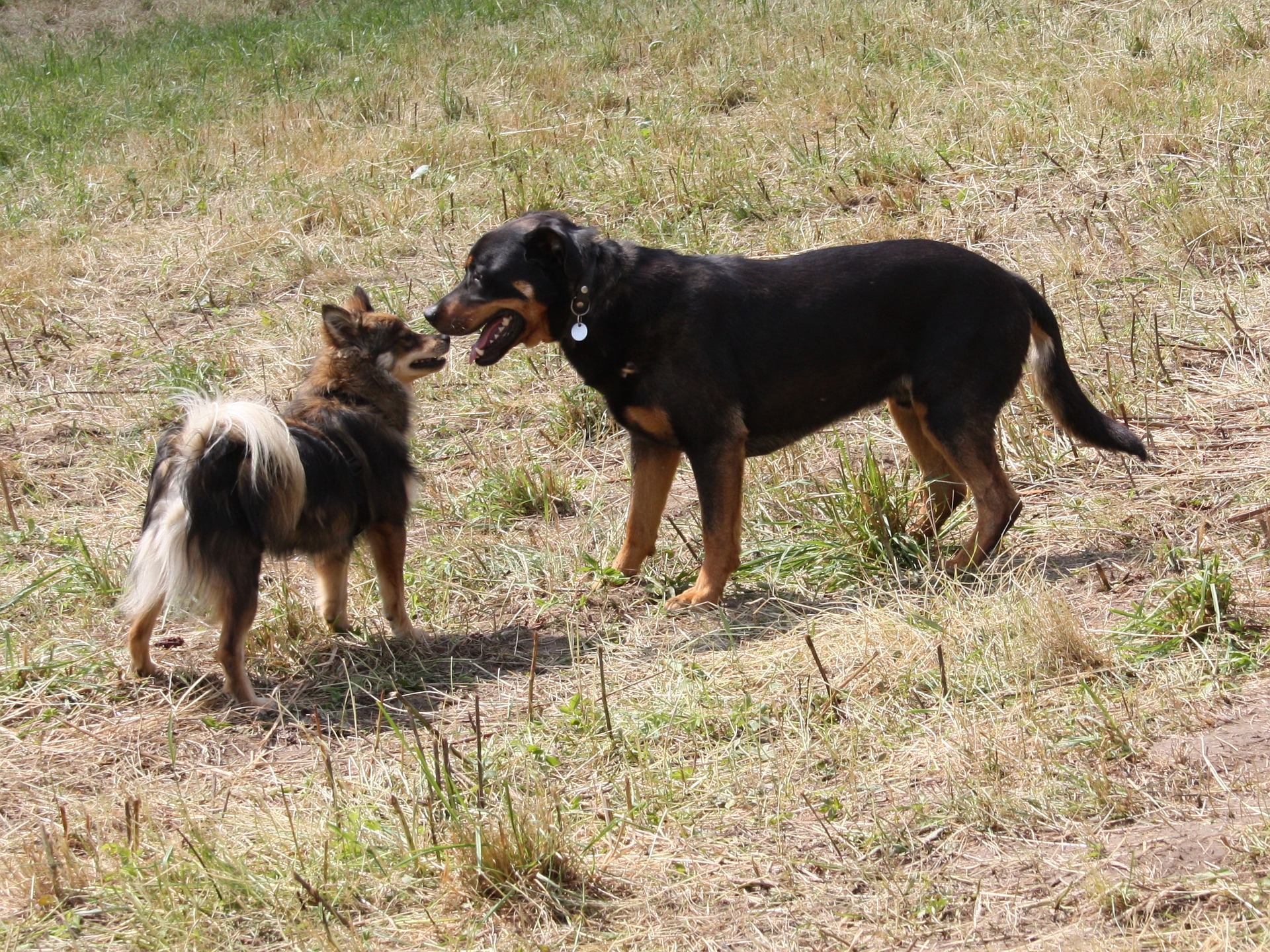One of the most important ways that we prepare a new puppy for a happy and well-adjusted life is by teaching them how to properly interact in their world. Socializing your dog means teaching him to not only get along with people and other dogs, but to do so with as little stress and anxiety as possible.
Ideally, we want our dogs to act appropriately when they meet new dogs and people, to behave in a family environment, and to not react to every sight and sound they encounter.
- Don’t Miss Your Window: The very best time to socialize a dog is between the ages of seven weeks and four months. As everything is new to a puppy, it is easier to teach them proper responses right from the beginning. If you gradually introduce them to new people, dogs, and social situations, they should positively respond to learning during this time. However, if you have rescued an older dog who has not been properly socialized, you can teach dogs at any age. It just presents more of a challenge as the dog has to unlearn incorrect responses. (By the way, a big thank you to all of you who rescue more mature dogs! You are awesome.)
- Don’t Add to the Stress: Dogs are highly sentient, empathic creatures – which simply means that they will pick up on your emotions. If you are anxious bringing them into a new social situation. they will feel your anxiety. Try to go into every encounter with an open mind and an optimistic attitude. If you are happy and calm, they are more likely to stay calm as well.
- Don’t Get Overly Ambitious: You may have visions of your puppy happily romping with 20 new friends at the dog park, but you may want to take introductions a bit slower. Having too much activity when you are first socializing your dog is likely to “scar them for life” and make things more difficult. Start instead with a ew people, or just one new dog at a time. Calm environments and calm interactions will teach them that meeting new dogs is a pleasant experience – not a fearful one.
- Don’t Yell at Them: If your dog acts in a way that is inappropriate – such as lunging at another dog – yelling at them will do more harm than good. Most dogs act aggressively out of fear, and that fear is then exaggerated when their trusted human is mad as well. Try rewarding them whenever they act appropriately. Rewarding for positive behavior generally works better than punishment. If you cannot get your dog to act the way you want him to, try removing him to a kennel in a quiet room (removed from you) every time he acts up. Eventually he will learn that acting out means a time out, and should learn to control behaviors.
- Don’t Force the Issue: If your dog is having a particularly hard time getting comfortable, take him out of the situation. If he is anxious or afraid, he will not get more comfortable if you force him to remain where he is. If at a dog park, go home. If talking to a friend who has a dog with them, politely excuse yourself. And if you are out walking and the one particular dog is approaching, turn and walk back the other way. There is no shame in taking your dog out of a situation which scares them,
If you are having trouble with the process of socializing your dog, call the experts at Gulf Coast K9 Dog Training. We have the experience and commitment to help.





